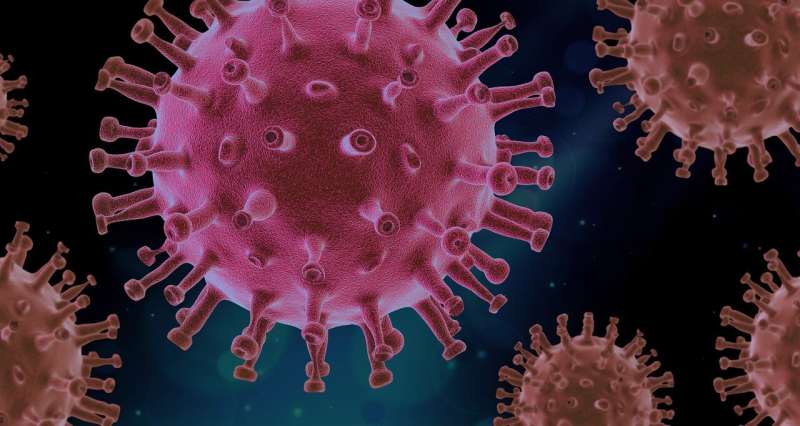Persistent T cell response to omicron after infection and vaccination

The omicron variant can partly evade the antibody response provided by vaccination or infection with previous variants of SARS-CoV-2. However, T cells still recognize omicron, scientists at Karolinska Institutet in Sweden report in a study published in the journal Nature Medicine.
Omicron has rapidly become the dominant variant of the SARS-CoV-2 virus. New data indicate that omicron is not only more infectious than previous variants, it can also infect people with previous immunity by evading what are known as neutralizing antibodies.
Serious disease seems, however, to be relatively uncommon in people who have been vaccinated or infected, suggesting that other components of the immune system are still able to recognize omicron. A new study by researchers at Karolinska Institutet now shows that so-called memory T cells formed following previous infection or mRNA vaccination also respond to the omicron variant.
"Along with viral factors, such as a lower level of viral replication in the lower airways, and other immune components, these results give us a clearer picture that may explain why the protection against severe omicron disease remains good in previously mRNA-vaccinated individuals," says principal investigator Marcus Buggert at Karolinska Institutet's Center for Infectious Medicine.
The study is a collaboration with the Karolinska University Hospital in Sweden and is based on blood samples from 40 vaccinated individuals, 48 individuals who had had a mild or severe SARS-CoV-2 infection, and 48 individuals who had previously been neither vaccinated nor infected. The samples from the vaccinated group were collected six months after their second vaccine dose, and from the previously infected group nine months after confirmed infection in the spring of 2020, prior to the emergence of the new viral variants. Other samples were taken from healthy donors at the end of 2020.
Memory T cells in both the experimental groups displayed a good ability to recognize the omicron spike protein; the best response, however, was observed in the vaccinated group.
"These results suggest that booster immunization may provide benefits that extend beyond the induction of neutralizing antibodies to enhance protection against recurrent episodes of severe COVID-19," says Dr. Buggert.
Even though the memory T-cell response was generally intact against omicron, some individuals did not respond as well.
"We now want to understand why the response differs from one individual to the next and if a third vaccine dose can augment the T cell response to omicron even more," he says.
More information: Yu Gao et al, Ancestral SARS-CoV-2-specific T cells cross-recognize Omicron, Nature Medicine (2022). DOI: 10.1038/d41591-022-00017-z


















